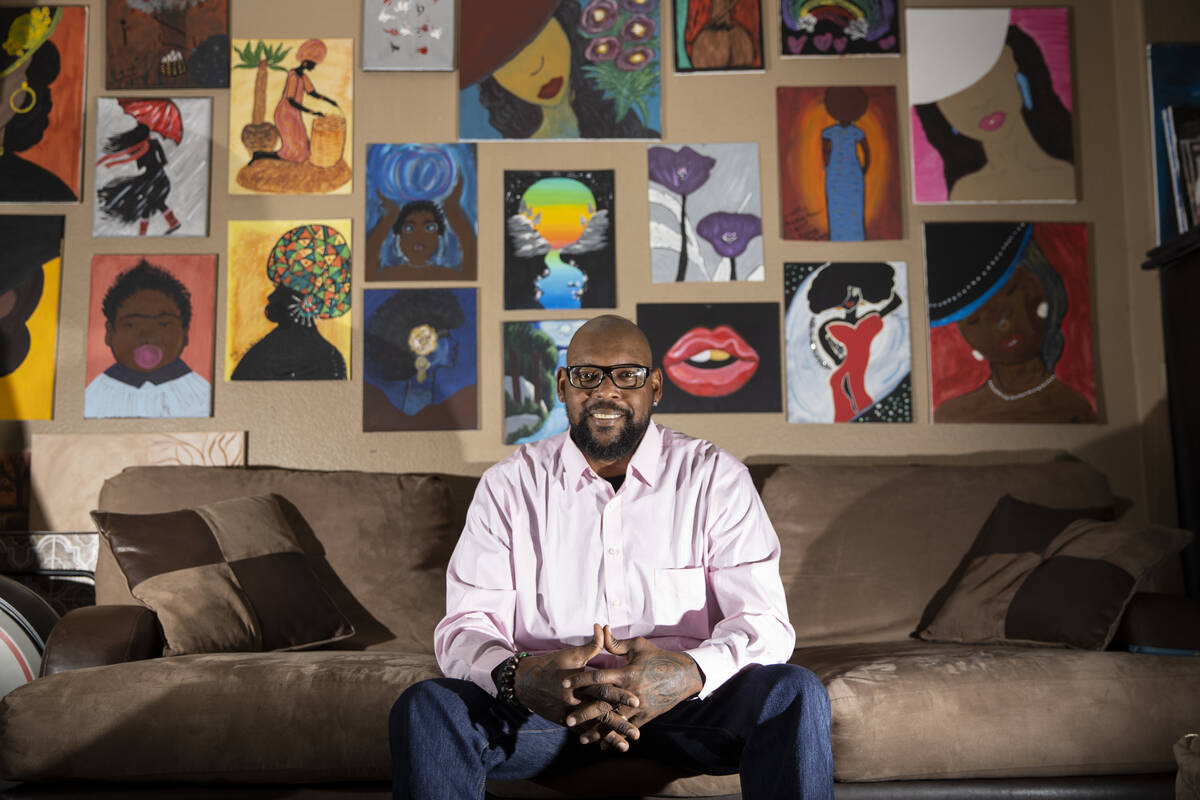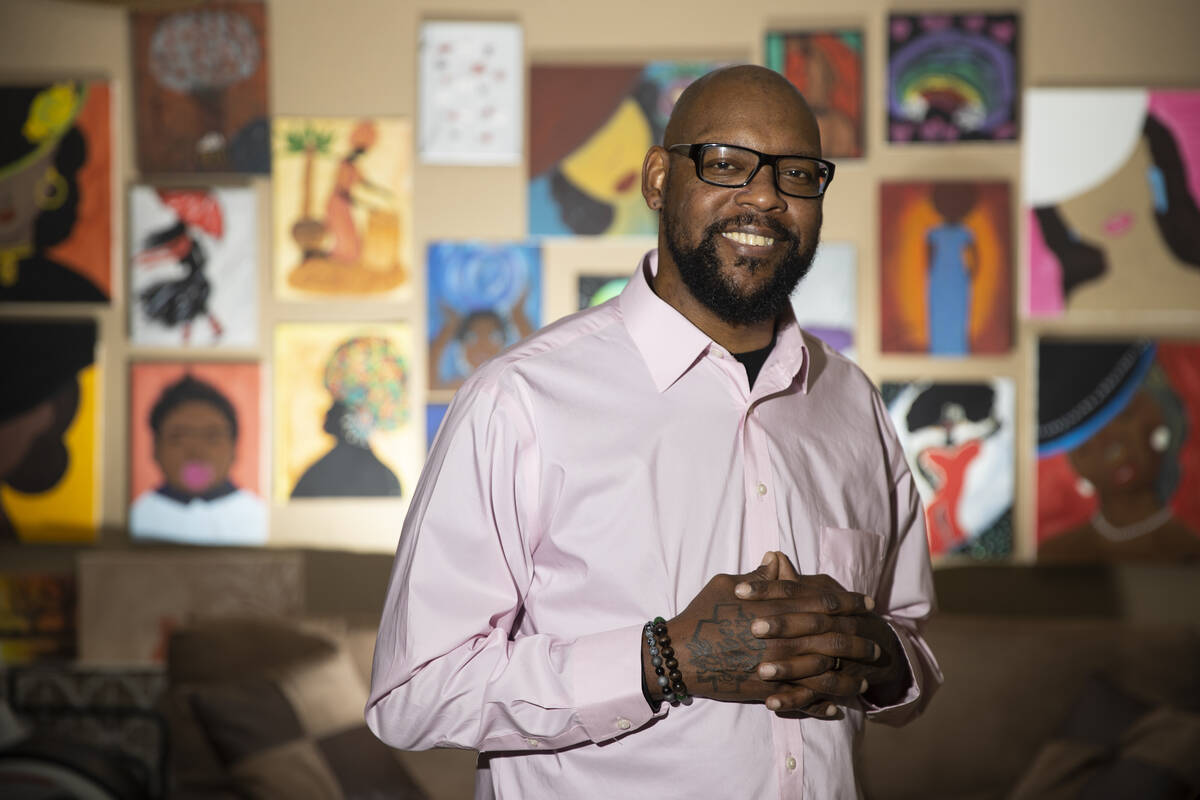Transplant recipient offers encouraging message to those waiting: Don’t give up
Marcus Roberts has celebrated his last few birthdays alone with a candle on a cupcake or a Twinkie.
“It was sad,” the veteran and former corrections officer said in an interview on Friday.
“I’d gotten to a point where I’d purposefully celebrate my birthday by myself, not knowing if I’d make it,” said Roberts, whose heart and kidneys were failing.
He plans to celebrate his next birthday — he’ll be 44 in March — with family and friends after having received heart and kidney transplants in March of this year.
In the meantime, he’s making the most of each day, including on Monday, when he’ll serve as an honorary rider on the Donate Life float at the Rose Parade in Pasadena, California.
“I’ve done a lot of things in my life,” he said. “I ride motorcycles. I’ve been around the world three times. I’ve been in a war. But standing in front of people like that, it kind of terrifies me — but an experience I won’t forget.”
He hopes that “just being able to show the world that someone normal had a second opportunity at life will hopefully get people to donate” their organs.
He also wants to encourage people waiting for an organ transplant to push through. Because he had given up.
Feeling sluggish
Roberts had been a lifelong athlete when he began to feel sluggish, which he at first attributed to hitting his 30s.
He grew up playing sports in Long Beach, California. He was playing football and running track for a Southern California community college when he enlisted in the Navy, where as an aviation and electronics technician he worked on jets and helicopters. After 9/11, he served on the aircraft carrier USS Constellation in the Middle East. He ran the fitness program for his squadron.
After five years in the Navy, he entered the Air Force Reserves, where as a radio communications specialist he helped to build radio towers and provide phone lines in Katrina-ravaged Louisiana and Mississippi.
In 2008, he moved to Las Vegas when his grandparents here got sick. He became a corrections officer with the Nevada prison system.
The sluggishness progressed in his 30s to where he could walk only short distances and then not at all. He could no longer work. Unable to live on his own, he moved in with his mother.
He was diagnosed with heart failure and then kidney failure, in what was described as a “medical anomaly” with no known cause. After taking a stress test at a hospital, he collapsed in the hospital cafeteria, his heart stopping. His mother, a nurse, performed CPR to save his life.
By 2017, he got on the list for organ transplant. Despite being hospitalized as many as 15 times after that, he was told there were people sicker than he was who would get a transplant before he would.
“Those hospitals pick and choose who they think ought to get (a transplant) before they’ve heard a person’s story,” he said.
With each hospitalization, he would be diagnosed with additional ailments, ranging from lupus to gout to osteoporosis, he said.
Roberts lost hope. “I had gotten extremely depressed,” he said. “I’d gotten very difficult to be around. I was everyone’s least favorite person.”
Enjoying each day
The only transplants performed in Nevada are kidney transplants. Roberts ultimately received both heart and kidney transplants at Cedars-Sinai Comprehensive Transplant Center in Los Angeles. Before and after receiving the transplant, he stayed at Ava’s Heart, a nonprofit that provides free housing to patients and families in the Los Angeles area.
On March 29, he received a heart, and on March 30 a kidney, both from the same decedent. He was walking with assistance a day after the kidney transplant, and walking unaided a week after that.
Today, “I feel great,” he said, after what he described as a “hiccup” when his body began to reject the organs, a reaction that is being treated with medication. His heart function, which dropped to 13 percent, is now at a normal 65 percent. Many of the other ailments he was diagnosed with have disappeared or improved.
He’s enjoying riding a motorcycle again, as well as cooking, painting and spending time with relatives, his fiancee and her children.
“I try to enjoy each day,” he said.
Roberts now serves as an advocate for other patients. His story is featured in a video in the “Counting on you” campaign funded by Thermo Fisher Scientific to promote organ donation and encourage patients to “champion their own best care,” according to the transplant diagnostics company.
More than 100,000 people in the U.S. are on the national transplant waiting list, with 17 people dying every day while waiting for an organ transplant, according to the Health Resources & Services Administration. One survey shows that while 90 percent of adults support organ donation, only 60 percent have signed up to be donors.
Allowing patients to tell their stories helps get the word out about the importance of organ donation, said Thermo Fisher Scientific representative Heather Manion.
“Maybe storytelling can help move the needle,” she said.
Those who wish to register as an organ donor on the National Donate Life Registry can visit registerme.org.
Contact Mary Hynes at mhynes@reviewjournal.com or 702-383-0336. Follow @MaryHynes1 on Twitter.
















